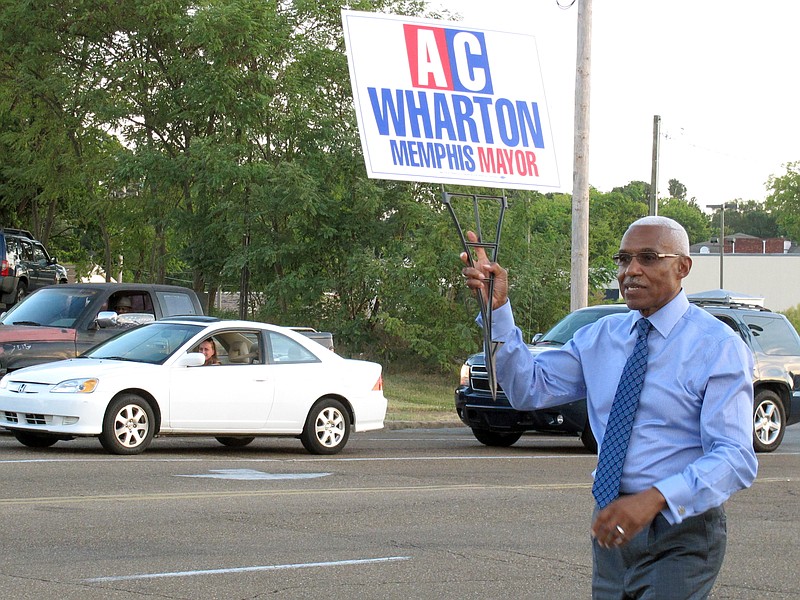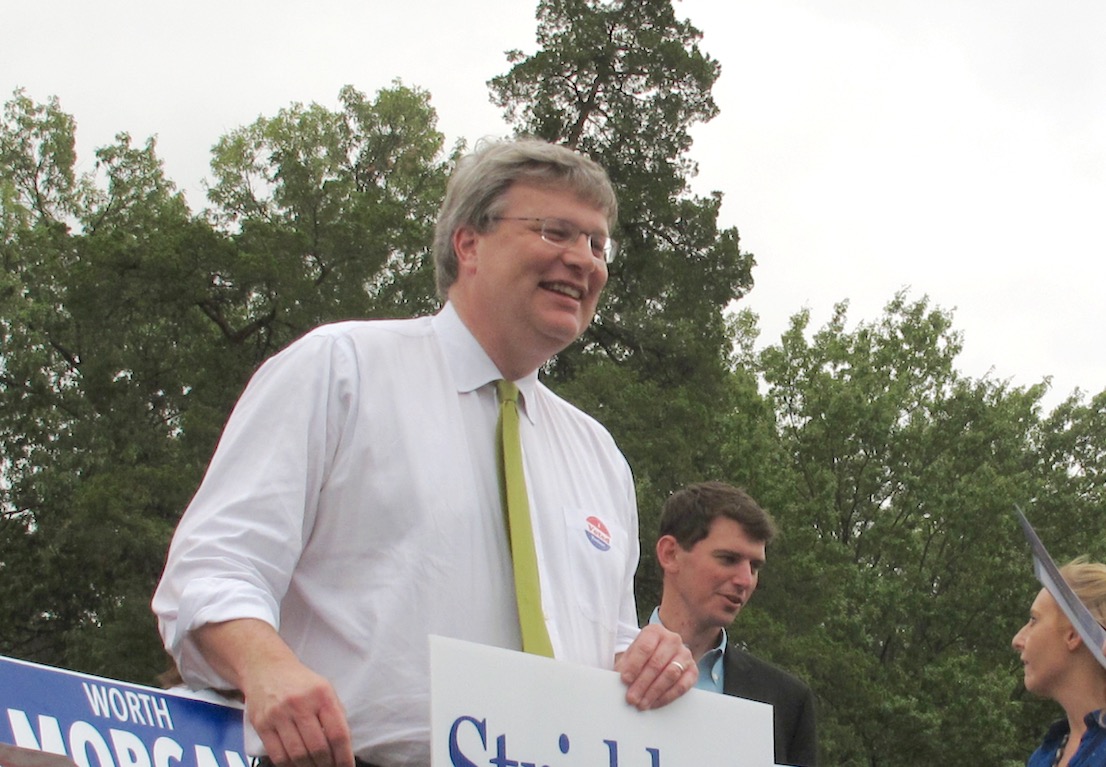MEMPHIS, Tenn. - Three-term incumbent A C Wharton Jr. has conceded Memphis' mayoral election to a city council member who is now poised to become the city's first white mayor in almost a quarter-century.
Wharton's concession to councilman Jim Strickland came late Thursday before complete results for the nonpartisan election were posted. Election officials reported a technical glitch in disseminating results and unofficial, incomplete totals Thursday night showed Strickland with a sizable lead.
This majority-black Mississippi River city hasn't had a white mayor since 1991. Strickland ran on a platform of change, pleding new steps to tackle the city's problems with poverty, urban blight, rising crime and troubled municipal finances.
"The people of Memphis spoke to the common hope in all of us, that Memphis can be better and that we must address the great challenges we face with a sense of urgency," Strickland told supporters at a victory rally.
Wharton was first elected mayor in 2009. He had sought another chance and throughout his campaign, Wharton pointed to the creation of thousands of jobs and increased economic development as signs that the city was ready to bounce back.
"Our city is poised to just really, really, really take off on a sustainable trajectory," Wharton told supporters during his concession speech. "For us to get to that foundation, blood had to be shed. I've shed my blood to go through some tough battlefields."
In the city where civil rights leader Martin Luther King Jr. was assassinated by a white man in April 1968, race is a consideration for many voters. Along with Wharton, other top African-American candidates included City Council member Harold Collins and Memphis police union chief Mike Williams.
A lawyer and City Council member since 2007, Strickland had pledged to be tough on crime by pushing for stiffer sentences for violent offenders. Strickland said he wanted to enforce a curfew for juveniles and involve more nonprofits in creating youth academic and employment opportunities. He also vowed to prioritize blight reduction and litter cleanup.
Wharton, a former public defender and Shelby County mayor, had helped revitalize Memphis' once moribund downtown area, the historic South Main district and the popular Overton Square entertainment area. He lured large companies such as Mitsubishi Electric, Nike, Electrolux and others to build facilities and bring thousands of jobs to the area.
But several factors worked against the incumbent. Public safety concerns emerged after a large group of teenagers attacked customers at a supermarket and knocked an employee unconscious in a parking lot melee caught on video last year. The FBI reported that the number of violent crimes, including homicides and rapes, increased by 4.6 percent in 2014 over the year before.
Financial problems, the seeds of which were sown long before Wharton took office, have hit the city hard. Memphis' tax base has shrunk due to population loss caused by residents moving away. Budget shortfalls led to pay cuts for police and fire in 2011, resulting in protests before the reductions were reversed two years later.
In 2014, the City Council voted to remove city subsidies from its health insurance and raise premiums for city employees - including police and fire workers. Savings went into the city's troubled pension program, which currently has an unfunded liability of about $530 million. The health insurance cuts led hundreds of police officers to call in sick as part of a so-called "Blue Flu," and ill will persisted.

